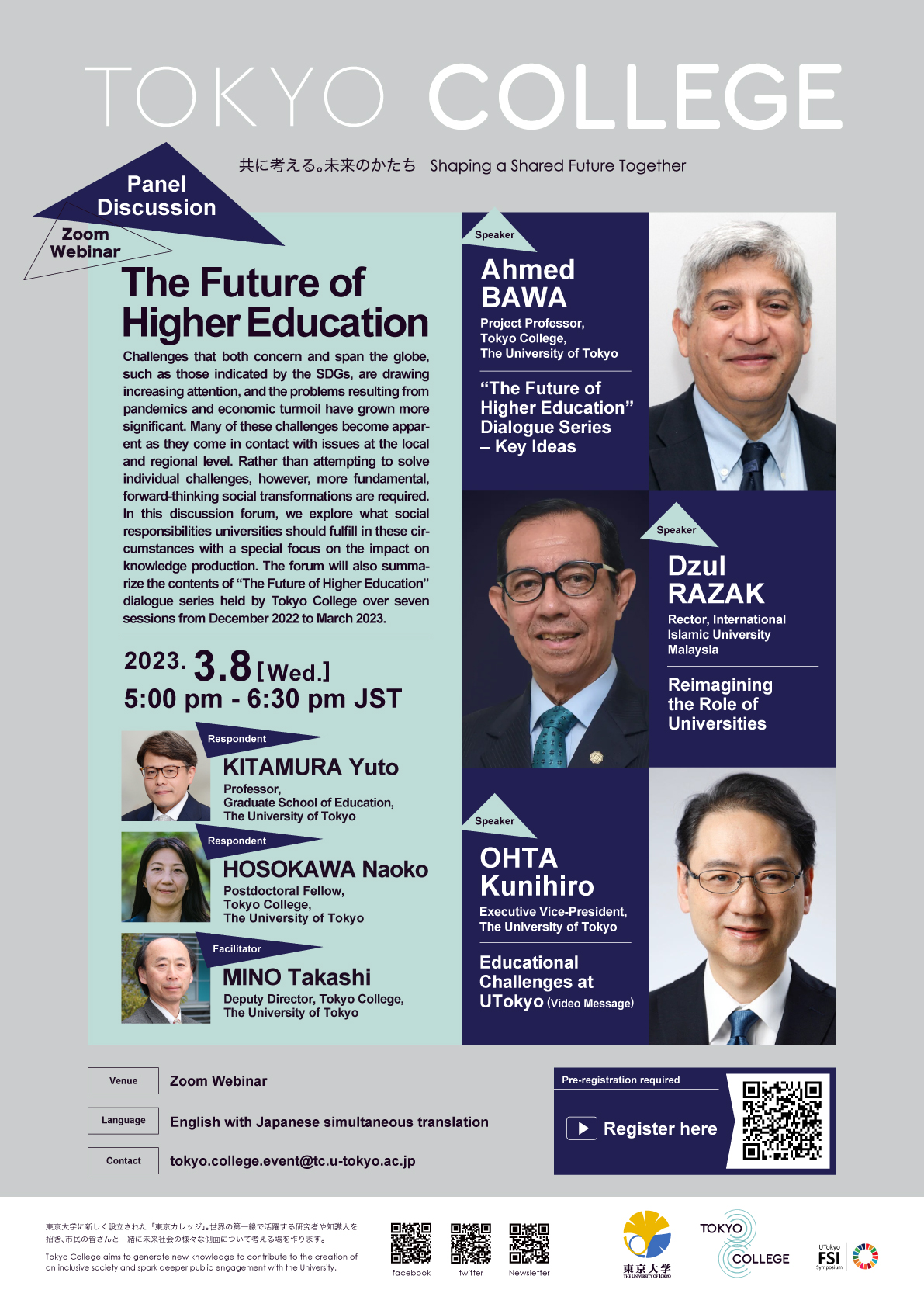Discussion Forum “The Future of Higher Education”

| Date(s) | Wednesday, 8 March 2023, 5:00 pm - 6:30 pm JST |
|---|---|
| Venue |
Zoom Webinar (Register here) |
| Registration | Pre-registration required |
| Language | English |
| Abstract |
Challenges that both concern and span the globe, such as those indicated by the SDGs, are drawing increasing attention, and the problems resulting from pandemics and economic turmoil have grown more significant. Many of these challenges become apparent as they come in contact with issues at the local and regional level. Rather than attempting to solve individual challenges, however, more fundamental, forward-thinking social transformations are required. In this discussion forum, we explore what social responsibilities universities should fulfill in these circumstances with a special focus on the impact on knowledge production. The forum will also summarize the contents of “The Future of Higher Education” dialogue series held by Tokyo College over seven sessions from December 2022 to March 2023. For more information about the “The Future of Higher Education” Dialogue Series, click here. |
| Program |
17:00-17:05 Introduction: MINO Takashi 17:05-17:30 “Future of Higher Education” Dialogue Series – Key Ideas: Ahmed BAWA 17:30-17:45 Reimagining Roles of Universities: Dzul RAZAK 17:45-17:55 Video Message “Educational Challenges by UTokyo”: OHTA Kunihiro 17:55-18:00 Respondent 1: KITAMURA Yuto 18:00-18:05 Respondent 2: HOSOKAWA Naoko 18:05-18:25 Discussions 18:25-18:30 Some Final Words: Ahmed BAWA |
| Speaker Profile |
Facilitator MINO Takashi (Deputy Director, Tokyo College, The University of Tokyo)
Coordinator Ahmed BAWA (Project Professor, Tokyo College, The University of Tokyo, Former CEO of Universities South Africa)
Speaker Ahmed BAWA (Project Professor, Tokyo College, The University of Tokyo, Former CEO of Universities South Africa) Dzul RAZAK (Rector, International Islamic University Malaysia, Former Secretary-General, International Association of Universities) OHTA Kunihiro (Executive Vice-President, The University of Tokyo)
Respondent KITAMURA Yuto (Professor, Graduate School of Education, The University of Tokyo) HOSOKAWA Naoko (Postdoctoral Fellow, Tokyo College, The University of Tokyo) |
| Organized by | Tokyo College, The University of Tokyo |
| Contact | tokyo.college.event@tc.u-tokyo.ac.jp |















